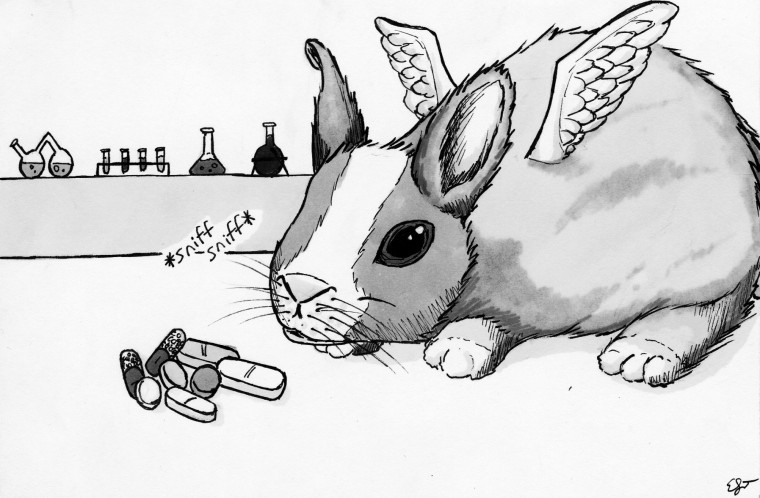Testing on animals leads to important medical breakthroughs
April 6, 2011
Animal rights activists are often concerned with the conditions of animals undergoing experimentation for medical research.
That concern, while understandable, often comes with demands to put an end to animal testing.
However, as long as the only alternative is to test on human beings, animal testing will be necessary for scientific advancement and human well-being.
Scientific testing of animals has led to remarkable breakthroughs in the medical field.
Deep brain stimulation is an effective treatment for Parkinson’s disease, which was discovered through studies conducted on monkeys that simulated a similar condition, according to The Parkinson’s Appeal, a group organized to provide the surgery more widely.
The Foundation for Biomedical Research declares in its research policy statement, “practically every present-day protocol for the prevention, treatment, cure and control of disease, pain and suffering is based on knowledge attained through research with lab animals.”
Victories over disease include “polio, diptheria, mumps, rubella and hepatitis.” Many of these life-saving discoveries have also been applied to improve the health of animals.
So what should we do about animal testing’s failures? Does the tragedy of thalidomide put a nail in the coffin of animal testing altogether?
According to Pro-Test, a UK-based activist group that defends animal testing, the answer is “no.”
Citing scientific literature on the study of thalidomide, they conclude the failure to recognize the harmful effects of the drug was not because animal testing is unreliable.
Instead the group states: “thalidomide did initially pass safety tests in animals but this was because the proper tests were not performed: thalidomide was not tested on pregnant animals. If a thorough battery of tests had been performed in animals, the teratogenic effects would have been caught. Thalidomide was never approved for sale in the USA because the Food and Drug Administration felt that not enough testing had been carried out. After its withdrawal from the market, thalidomide was tested on pregnant animals and found to induce birth defects.”
There are alternatives to animal testing, but it is not as if scientists are willfully ignoring those methods because they can experiment on a rabbit instead.
A BBC News story details the quest for an animal-free lab and a set of scientific principles known as the three Rs: reducing, refining and replacing.
These principles are set in place in order to limit animal testing and use alternatives when possible. Dr. Phil Stephens, a cell biologist from Cardiff University, was quoted as saying that while in vitro testing is actually more cost effective, it has limitations.
I cannot say I am without bias in this discussion-I am a human being, and as such, I put a lot of value in the lives of human beings.
Humans, having rational and intellectual capacity exceeding that of other animals, pose far greater ethical concerns in the course of scientific tests than purposefully-bred lab mice.
Please understand that I am not saying traits unique to humans give us license to freely torture animals and pillage the earth. There is a difference between suffering for the sake of cruelty and suffering as a consequence of medical research.
Science, by its very nature, is constantly evolving and improving its practices, techniques and knowledge of our world. Perhaps one day we will see an end to animal testing, replaced completely by sophisticated computer simulations and test tubes.
Until then, mice will have to suffice.



